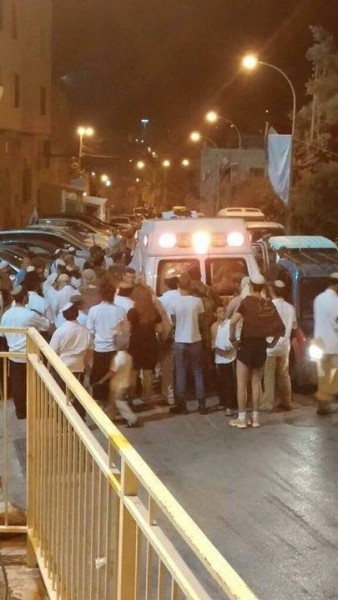Tag: Settlement
-
Settlers lay siege to Wadi Alhussein neighbourhood in Hebron (Al Khalil), Daana family under threat
18th October 2015 | International Solidarity Movement, Al-Khalil team | West Bank, occupied Palestine Sunday 18 October The Hebron (Al Khalil) neighbourhood of Wadi Alhussein is tonight, Sunday 18th October, under siege as armed settlers rampage through the streets with support of the Israeli forces. International human rights activists are currently standing in solidarity in…
-
In al-Khalil (Hebron) the situation grows gravely worse
18th October 2015 | International Solidarity Movement, al-Khalil team | Hebron, occupied Palestine After a day of intensified violence in al-Khalil the midnight hour brought horrifying screams for help from local mosques, the screaming sirens of ambulances and clouds of teargas drifting through the streets from Bab al-Zawiya. Three young Palestinians in Khalil lay dead…
-
Ruthless killing of Palestinian youths in al-Khalil (Hebron)
17th October 2015 | International Solidarity Movement, al-Khalil team | Hebron, occupied Palestine ******* UPDATE 9pm: No stop to violence, settlers are taking over the streets The Tel Rumeida neighbourhood of al-Khalil is on lockdown for Palestinians. Palestinian residents and internationals are not allowed to be on the streets, on their own roofs or at…


